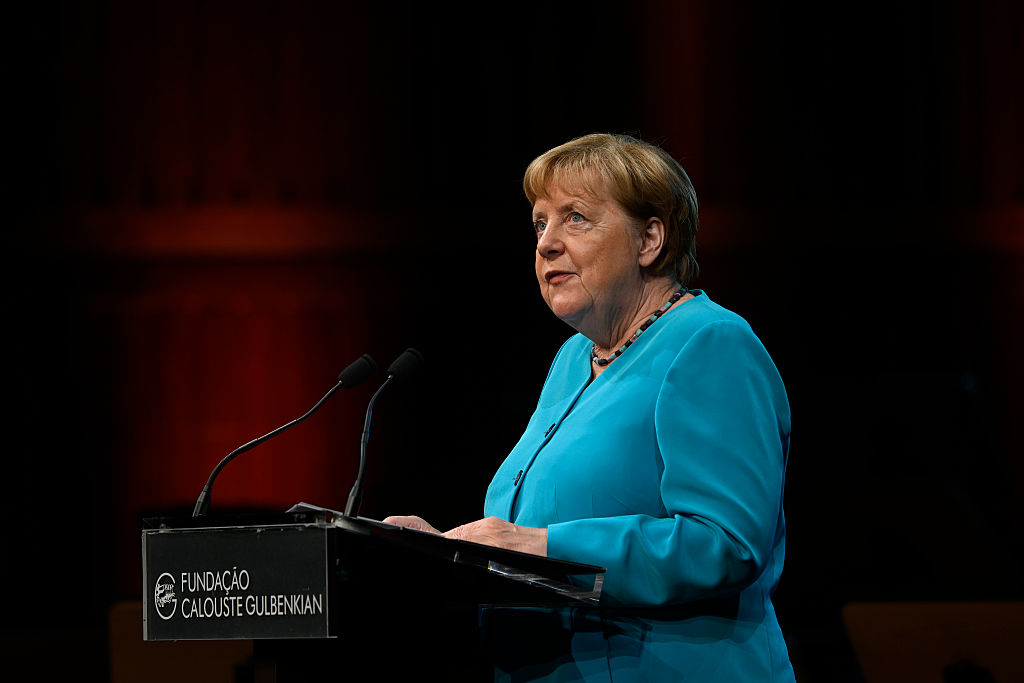A decade ago today, on 31 August 2015, Angela Merkel made the unilateral decision to open Europe’s borders. The rallying cry of the German Chancellor has gone down in history: ‘Wir schaffen das’ – ‘We can do this’. If we can’t, she added, ‘if Europe fails on the question of refugees, then it won’t be the Europe we wished for’.
Merkel was motivated by conflict in the Middle East, notably in Syria and Iraq, but her invitation to seek refuge in Europe was seized on by many others. Of the estimated 1.3 million people who flooded into Europe in 2015, there were vast numbers of Afghans, Pakistanis, Iraqis, Nigerians, Moroccans, Algerians and Eritreans.
And they kept arriving. Between 2015 and 2017, Germany accepted 1.4 million migrants. France took in 276,000, Italy 240,000 and Sweden 205,000. At the time, most European leaders – except Hungary’s Viktor Orban – were supportive of Merkel. France’s Socialist prime minister in 2015, Manuel Valls, told parliament that the Republic would not be found wanting:
There isn’t the space to describe in detail how Europe has degraded in the last ten years
France, faithful to its values, knows who it is… . It is France’s duty to welcome those who are persecuted for their ideas or exposed to risks to their integrity.
In 2023 though, Valls declared that ‘on immigration, we must press the “stop” button’.
That button hasn’t been pressed. After a brief diminution during the Covid pandemic, illegal immigration into Europe has accelerated in the last two years. Last week, authorities on the Canary Islands requested more help from Frontex, the EU’s border agency, because of the number of migrants arriving from Africa.
This week, nearly 800 migrants landed on the Italian island of Lampedusa in a 24-hour period. Illegal immigration from France to England has reached record levels.
It took many Europeans only a few weeks to realise that Merkel had made a dreadful mistake. In her traditional New Year’s Eve message on the last day of 2015, the Chancellor described the migrants and refugees as ‘an opportunity for tomorrow’, and she urged Germans to trust her decision because ‘countries have always benefited from successful immigration, both economically and socially’. A few hours later in Cologne, scores of young women celebrating the New Year were sexually assaulted, predominantly by men who had recently arrived in the country.
Writing in these pages on 9 January 2016, Douglas Murray said that ‘Cologne exposes a crisis in our continent’. And what was the response of the European elite to this crisis? ‘Unwilling to face up to our problems, we obsess over the responses to those problems,’ wrote Murray. ‘If we keep distracting ourselves from the problem…then this continent of ours is going to go very bad, very fast.’
Europe has gone bad. There isn’t the space to describe in detail how Europe has degraded in the last ten years; but who would have imagined a decade ago that a few years’ hence Jews would be hunted through the streets of Amsterdam, gays would be butchered in an English park, synagogues would be firebombed in French cities and Sweden would become synonymous with hand grenade attacks?
Electorates throughout Europe have responded to this upsurge in violence by voting for political parties who, to paraphrase Murray, are willing to face up to the problem of mass uncontrolled immigration. It accounts for the rise of Nigel Farage, Marine Le Pen, Geert Wilders, Giorgia Meloni and the success of right-wing parties in Austria, Portugal, Spain, Germany, Greece and Sweden.
The support for these parties is also fuelled by a disenchantment with the political elite. For a decade they have been gaslighting the European electorate.
For 2015 wasn’t just the year when Merkel opened up Europe; it was also when Islamist terrorists began targeting the continent. In January that year, two Al-Qaeda extremists massacred the staff of the French satirical magazine Charlie Hebdo. In response, the EU issued a statement that it vowed to ‘ensure the security of citizens’. This would be done, promised Brussels, with a commitment ‘to reinforce and modernise external borders’ control… to detect and disrupt terrorist-related travel, notably of foreign terrorist fighters’.
Ten months later, Paris was again targeted by Islamists, and among the Islamic State cell which massacred 130 people were two men who had slipped into Europe posing as migrants.
According to security experts, Islamic State is undergoing a resurgence in Africa this year, particularly in the west of the continent. And Europe is in their sights once more. In a recent communique published in its newsletter, the terror group exhorted its followers to deliver Jihad ‘to the shores of Europe, to invade it, shatter its security’.
Europe’s security was shattered long ago. Islamist attacks have diminished in scale, if not number, in recent years, mainly because the continent’s intelligence services have become much more efficient in dismantling organised networks. But it is very difficult to stop the lone fanatic, like the Tunisian who murdered three churchgoers in Nice in 2020 or the Syrian who killed three Germans at a festival in Solingen last year.
Ten years on, the EU has not made good on its promise to defend Europe’s borders against terrorists. They remain as porous as ever, as witnessed this month in Lampedusa and the Canary Islands. Many of these arrivals set out from west Africa, home to a resurgent Islamic State. Most have come to Europe in search of a better life, but how do we know that one or two haven’t come to deliver Jihad?
In her memoirs published last year, Merkel said she has no regrets about the decision she made on 31 August 2015. She may not, but as opinion polls repeatedly show, the majority of Europeans bitterly regret the chaos she has unleashed. It’s not the people who failed on the question of refugees, it’s Merkel. Her legacy is to have turned Europe into a continent that few wished for.







Comments